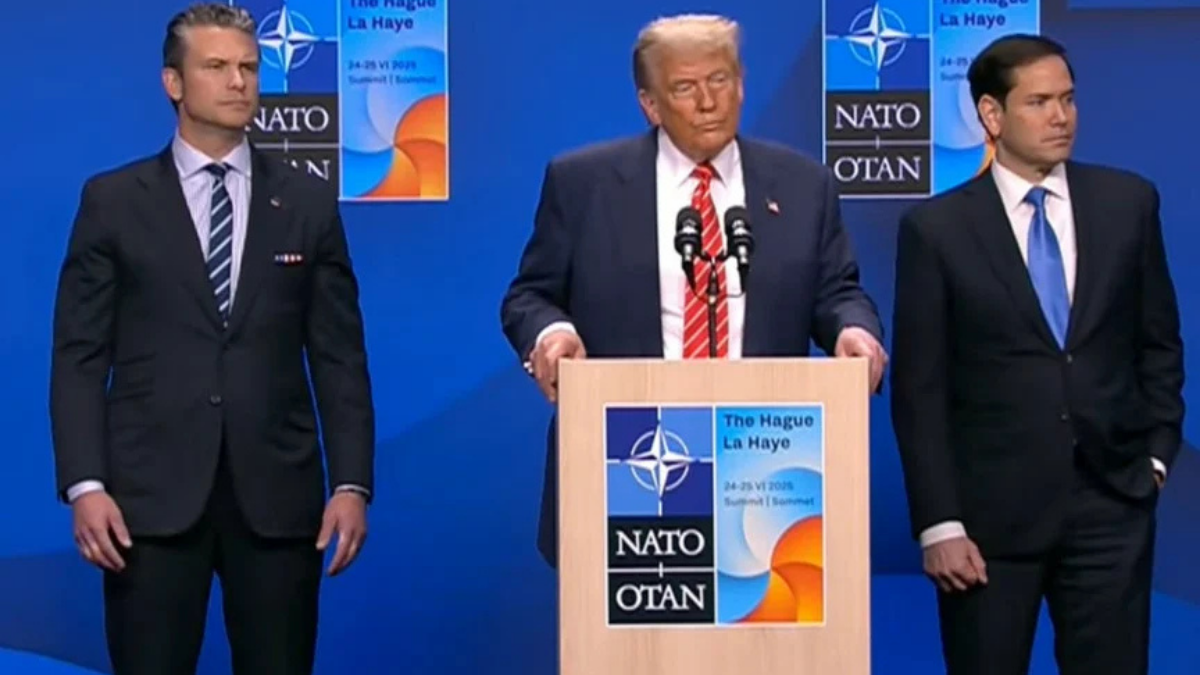White House Limits Intelligence Sharing with Congress After Iran Leak: In a surprising move, the White House announced on June 26, 2025, that it will restrict intelligence sharing with Congress following a leak about U.S. airstrikes on Iran’s nuclear facilities. This decision, reported by NBC News, has sparked heated debate, with lawmakers and analysts questioning its implications for national security and transparency. Why is this happening, and what does it mean for U.S. foreign policy? Let’s dive into the details.
Background: The Iran Airstrike Leak
What Happened?
On June 26, 2025, a Defense Intelligence Agency (DIA) assessment revealed that U.S. airstrikes on Iran’s nuclear sites set the country’s nuclear program back by just three to six months. This classified report, meant for congressional leaders, was leaked, prompting outrage from the Trump administration. The White House claims the leak compromises national security, while critics argue the administration is using it as an excuse to limit oversight.
The White House Response
A senior White House official confirmed to NBC News that the administration will reduce information shared via CAPNET, the secure system used to communicate classified material to Congress. This move has drawn sharp criticism, particularly from Democrats like Senate Minority Leader Chuck Schumer, who called for the decision to be reversed, accusing the administration of hiding inconvenient truths.
Why This Matters
Transparency vs. Security
The decision to limit intelligence sharing raises a critical question: how do you balance national security with government transparency? Congress relies on classified briefings to oversee military actions and ensure accountability. Restricting access could weaken this oversight, potentially allowing unchecked executive power. On the other hand, leaks can endanger operations and embolden adversaries like Iran.
Political Fallout
The move has deepened partisan divides. House Speaker Mike Johnson, a Republican, expressed frustration over the leak, suggesting it originated from Congress. Meanwhile, Democrats argue the administration is dodging scrutiny, especially since the DIA’s assessment contradicts claims by Defense Secretary Pete Hegseth and CIA Director John Ratcliffe that the strikes “severely damaged” Iran’s nuclear capabilities.
The Bigger Picture: U.S.-Iran Tensions
A History of Conflict
U.S.-Iran tensions have simmered for decades, with Iran’s nuclear ambitions at the forefront. The 2015 Iran Nuclear Deal (JCPOA) aimed to curb Iran’s nuclear program, but its collapse in 2018 under the Trump administration reignited hostilities. The recent airstrikes, targeting three major nuclear facilities, were meant to disrupt Iran’s progress but have instead fueled debates about their effectiveness.
Expert Insights
According to Dan De Luce, an NBC News investigative reporter, the strikes’ limited impact (three to six months) suggests Iran’s nuclear program is more resilient than anticipated. This aligns with a 2023 International Atomic Energy Agency (IAEA) report estimating Iran could produce weapons-grade uranium in weeks if unchecked. Experts warn that curbing intelligence sharing could hamper Congress’s ability to strategize long-term solutions.
What’s Next?
Congressional Briefing
On June 27, 2025, top officials, including Secretary of State Marco Rubio and Defense Secretary Pete Hegseth, are set to brief senators in a classified session. Notably, Director of National Intelligence Tulsi Gabbard will not attend, with CIA Director John Ratcliffe representing the intelligence community. This absence has raised eyebrows, with some speculating it reflects internal administration tensions.
Potential Consequences
Limiting intelligence sharing could strain executive-legislative relations. Congress may push back, potentially through legal challenges or public pressure. Additionally, reduced transparency could erode public trust, especially if future leaks reveal discrepancies in the administration’s narrative.
How This Affects You
For everyday Americans, this situation underscores the delicate balance between security and accountability. Without access to accurate information, Congress may struggle to represent public interests in foreign policy decisions. This could also impact U.S. credibility on the global stage, as allies and adversaries watch how the administration handles dissent and transparency.
Conclusion
The White House’s decision to limit intelligence sharing after the Iran leak is a pivotal moment in U.S. politics. It highlights the tension between safeguarding sensitive information and ensuring democratic oversight. As the Senate prepares for its classified briefing, all eyes are on how this controversy will shape U.S.-Iran relations and domestic trust in government. Stay informed, because these decisions affect us all.
